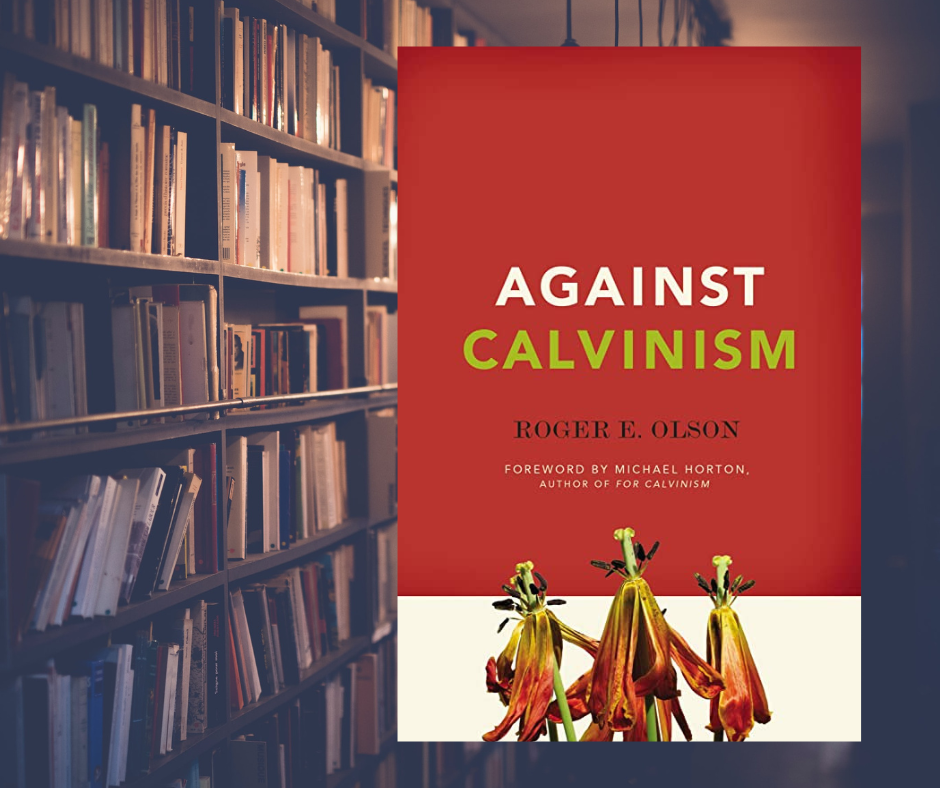Against Calvinism
Roger E. Olson (Zondervan, 2011)
It is somewhat risky to recommend this book, simply because of its title. Nonetheless, this is an important book, especially for church leaders in this day and age and especially if you find yourself having an immediate and negative emotional reaction to the very idea that we are recommending a book with this title. And if you are on the other side of the debate, excited for ammunition to argue for ‘free will,’ Olson offers some important corrections and clarifications even for you. If you have heard about some kind of historic Christian disagreement about ‘predestination or free will’ and are curious to understand this conflict, this is a good source from which to learn more about it.
John Calvin, a 16th Century Swiss lawyer, launched a rich and vital movement in Protestantism that has waned and waxed over the centuries. Calvinism has experienced something of a revival in the 21 st Century. An important aspect of Calvinism is the high regard it has for the Bible and the way in which it values the application of rigorous scholarship in the process of understanding and interpreting Scripture. Growing out of this, Calvinism encourages clarity and precision in how we define who God is and how we encounter his great intervention into our fallen world through Jesus Christ. This book, Against Calvinism, fully acknowledges the importance and the value of Calvin’s and later Calvinists’ contributions in Christian history as well as how they enrich our understanding of God and his Word today.
The reason why this book was written against Calvinism now is due to a new kind of Calvinism that has arisen over the last 15 to 20 years which departs from its own tradition and contains certain serious flaws, out of which arise extremely problematic misconceptions about the character of God and the origins of sin and evil. Connected with this neo-Calvinism is a digression into arrogance that is causing much heartache and division in some of our churches and denominations – including here in the Czech Republic.
Olson works hard to accurately describe orthodox Calvinist theology, and critiques its flaws as well as the errors that have arisen in the so-called neo-Calvinism of the early 21st Century. Of particular interest is his investigation of the TULIP points – which points and which parts of the TULIP system hold up, and which ones become problematic when taken to their most extreme conclusions. Olson offers a compelling argument for an alternative to Calvinism, which is classical Arminian theology. Arminius was a Dutch theologian in the late 16th and early 17th Centuries whose views have become THE alternative to Reformed Calvinist Theology in Western Evangelicalism. Olson points out misunderstandings and misconceptions about Arminian theology and provides insight into the real points of disagreement between classical Calvinism and classical Arminianism. Hint: The main point of contention is not predestination or free will, as these concepts are popularly understood. In two appendices, Olson provides Arminian responses to common areas of disagreement with Calvinists. Appendix A critiques the various strategies Calvinists use to ‘protect God’s reputation.’ In Appendix B, he responds to some of the more divisive and problematic Calvinist claims.
If you are a student of theology and interested in better understanding the predestination vs. free will debate, do not miss out on the insights this book has to offer! Whether you already consider yourself a Calvinist or an Arminianist, you may be surprised at what you can learn from Olson’s work. If you are a pastor, teacher, or church leader, Olson provides valuable insight into both Calvinism and Arminianism that will be useful to you inyour ministry and perhaps even help you draw closer to our amazing sovereign God as you increase your understanding of who he is.
One final important note: this book is part of a two-book series. Arminianism is not without its own weaknesses and is prone to its own errors. In our next review, we will recommend the companion volume, For Calvinism, by Michael Horton.
Andrew Funka


